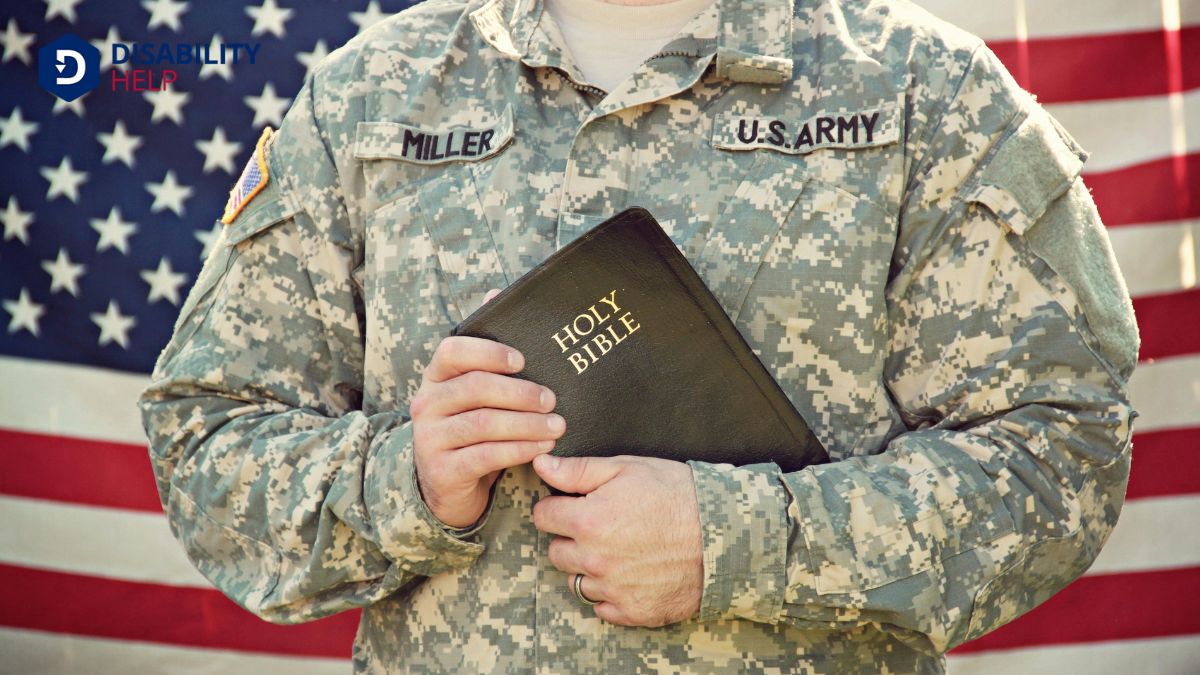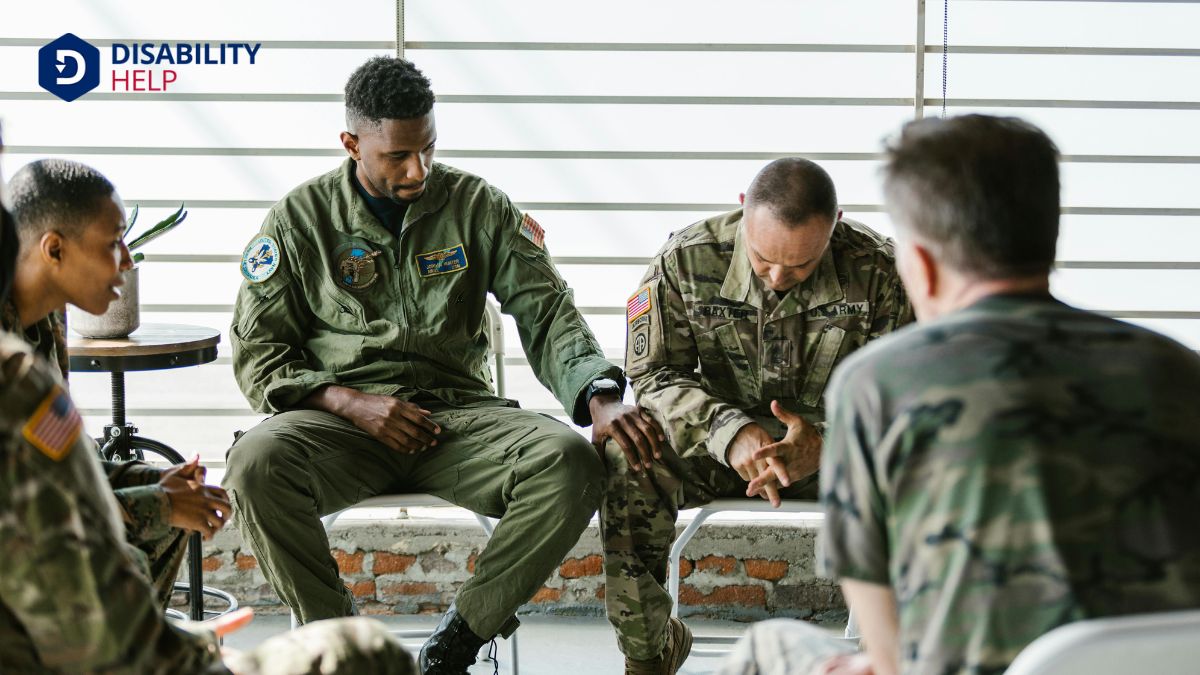If we've served in the armed forces with 180 days of continuous active duty, and our discharge wasn't dishonorable, we might be considered veterans. Those who served exclusively in the Reserves or National Guard are veterans only if they were called to active duty under federal orders. Our DD Form 214 is essential for verifying our service details and discharge status. An honorable discharge usually signals eligibility for various veterans' benefits, like education or healthcare. Let's explore the specific criteria and benefits further to fully understand our veteran status and opportunities available to us.
Key Takeaways
- Verify your service with a DD Form 214, focusing on active duty and discharge status.
- An honorable discharge typically confirms veteran status for benefits and recognition.
- Active duty service of at least 180 days is usually required to qualify as a veteran.
- Reserve or National Guard duty counts if activated under federal orders.
- Consult a Veterans Service Officer for assistance in verifying your veteran status.
Defining Veteran Status
Determining veteran status isn't always straightforward, but it's important for accessing specific benefits and recognition. As we navigate this topic, let's first clarify what defines a veteran.
Generally, a veteran is someone who served on active duty in the armed forces and was discharged under conditions other than dishonorable. However, the definition can vary slightly based on different contexts, like governmental benefits or private acknowledgments.
We might ask, "Does part-time service or being in the reserves make us veterans?" Typically, reserve service alone doesn't qualify unless we were called to active duty. It's vital to understand that eligibility often hinges on service duration and discharge status.
In our quest for clarity, let's remember that designations like "wartime veteran" or "combat veteran" carry specific meanings. These terms refer to service during particular conflicts or in combat zones, which can impact the benefits we might receive.
Ultimately, defining veteran status involves understanding the nuances of our service records. We should check our DD Form 214, which details our service history and discharge status. By reviewing this document, we can confirm our eligibility and make sure we're recognized for our service.
Active Duty Service Requirements

When it comes to active duty service requirements, understanding the specifics can be vital for confirming veteran status. We often hear the term "active duty" and might wonder what it truly includes. Let's clarify this to make sure we're all on the same page.
Active duty refers to full-time duty in the active military service, including members of the Army, Navy, Air Force, Marine Corps, and Coast Guard. But how can we determine if our service qualifies us as veterans?
- Duration of Service: Typically, serving at least 180 days of continuous active duty is a key requirement. This period doesn't include training periods.
- Type of Discharge: It's important that we receive a discharge that isn't dishonorable. The type of discharge can impact our veteran status and eligibility for certain benefits.
- Service Period: Serving during wartime or a conflict can also impact our status. Some periods of service are specifically acknowledged for veteran status.
Reserve and National Guard Criteria
When we're considering the Reserve and National Guard criteria for veteran status, we need to look at service duration requirements and what counts as active duty.
We should also understand how retirement eligibility plays a role in determining veteran status.
Service Duration Requirements
Understanding service duration requirements is essential for determining veteran status, particularly for those in the Reserve and National Guard. We often find ourselves navigating a labyrinth of regulations and definitions, which can feel overwhelming. Let's break down the key points to help clarify what counts towards veteran status for members of these components.
- Active Duty Time: Serving on active duty for a cumulative total of 180 days or more, not including training, typically qualifies us for veteran status. This might include deployments or specific duty assignments.
- Federal Orders: If we've been activated under Title 10 orders by the President or the Secretary of Defense, this time counts. These orders are federal and involve our service being called in response to national needs.
- Retirement Eligibility: Completing 20 years of qualifying service and receiving a retirement pension from the Reserve or National Guard also grants us veteran status, regardless of active duty days.
Active Duty Definition
Defining "active duty" for members of the Reserve and National Guard is vital for determining veteran status. Often, confusion arises about what constitutes active duty for these groups. Let's clarify this together.
When Reserve and National Guard members are called to active duty by a federal order, typically for training or deployment, it counts towards veteran status. This distinction is important because regular weekend drills and annual training periods generally don't qualify as active duty.
We need to understand the difference between federal and state activation. Federal activation, under Title 10 of the U.S. Code, is what most often contributes to veteran status. In contrast, state activation, under Title 32, usually for natural disasters or state emergencies, typically doesn't qualify unless there's a federal directive involved.
It's essential for us to recognize that the type of active duty service impacts benefits eligibility. For those of us in the Reserve or National Guard, knowing when our service is federally recognized can make a significant difference. This understanding not only helps in determining our veteran status but also informs us about the benefits and recognition we may be entitled to receive.
Retirement Eligibility Criteria

As members of the Reserve and National Guard, maneuvering the retirement eligibility criteria can sometimes feel overwhelming. Let's break it down to simplify the process.
First, it's important to know that retirement eligibility is based on a points system, where points accumulate through active service, training, and other qualifying activities. Our goal is to earn enough points to qualify for retirement benefits.
Here's what we need to remember:
- Earning Points: To qualify for retirement benefits, we need at least 20 "qualifying" years of service. A qualifying year means earning a minimum of 50 retirement points. Points can be earned through active duty, inactive duty training, and additional activities such as completing correspondence courses.
- Age Requirement: Typically, retirement pay begins at age 60. However, for each 90 days of active service after January 28, 2008, our retirement age may be reduced by three months.
- Notification of Eligibility (NOE): Once we reach 20 qualifying years, we'll receive a Notification of Eligibility for Retired Pay (20-Year Letter). This confirms our eligibility for retirement benefits upon reaching the necessary age.
Understanding these criteria helps us navigate the path to a well-deserved retirement. Let's make sure we track our points and stay informed of any changes.
Honorable Discharge Considerations
When considering our status as veterans, we need to evaluate our discharge status carefully. An honorable discharge is often a key factor in verifying our military service and qualifying for veteran benefits. Let's take a closer look at how our discharge papers can guide us in confirming our veteran status.
Discharge Status Evaluation
To determine if you've achieved veteran status, understanding your discharge status is essential, particularly if you have an honorable discharge. An honorable discharge generally signifies that you've met the military's standards for conduct and performance. This type of discharge can open doors to various benefits and services, which are often tied to veteran status. Let's explore what makes an honorable discharge significant.
- Eligibility for Benefits: An honorable discharge usually qualifies you for a wide range of veterans' benefits, including education, healthcare, and home loan programs. It's pivotal to know your discharge status to access these opportunities.
- Veteran Recognition: With an honorable discharge, you're officially recognized as a veteran. This acknowledgment comes with the respect and gratitude of your country for your service.
- Employment Opportunities: Many employers give preference to veterans with honorable discharges, offering the potential for career advancement and job security. Understanding your status can help you leverage these opportunities.
Evaluating your discharge status enables us to clearly see the path forward and make informed decisions about accessing benefits and opportunities available to veterans.
Military Service Verification
Confirming our military service is a key step in validating veteran status, especially when considering the implications of an honorable discharge. It's important that we comprehend how our service record impacts the benefits and recognition we might be entitled to.
The first document we need to focus on is the DD Form 214, which is the official record of service. This document provides details about the nature of our discharge, whether it's honorable, general, or something else.
An honorable discharge indicates that we completed our service with dignity and adherence to military standards. This status can greatly influence the benefits available to us, such as education assistance, healthcare, and VA loans. If we possess this type of discharge, it's essential to have this documented clearly on our DD Form 214.
When verifying our service, we can request our military records through the National Archives or the Veterans Affairs office. It's a simple process that helps us substantiate our veteran status. By doing so, we're taking an important step toward understanding and accessing the recognition and support we've earned through our service.
Let's make sure we've our records in order to fully embrace our veteran identity.
Understanding Military Service Records

Understanding military service records is significant in determining veteran status, as these documents provide a detailed account of one's military career. They help us verify the time served, the nature of discharge, and any honors or awards received. Let's take a closer look at why these records matter.
- Verification of Service Periods: Our service records document the exact dates we entered and left military service. This helps confirm eligibility for veteran benefits, which often depend on the duration of service.
- Discharge Status: The type of discharge we received is important. Honorable discharge usually qualifies us for veteran benefits, while other types might not. Reviewing our records ensures we comprehend our discharge status.
- Recognition of Service: Awards and honors listed in our records validate our accomplishments and contributions. They can play an essential role in determining eligibility for certain veteran programs.
Federal and State Definitions
Not everyone understands what exactly defines a veteran, as both federal and state definitions can vary. Let's explore these variations together to shed light on what it means to be recognized as a veteran in different contexts.
Federally, the U.S. Department of Veterans Affairs (VA)A U.S. government agency that provides services and benefits to military veterans, including those w... typically defines a veteran as a person who served in the active military, naval, or air service and was discharged or released under conditions other than dishonorable. This broad definition guarantees that many who served can access certain rights and recognitions.
However, states might have their own criteria for defining a veteran, often tailored to specific programs or benefits they offer. Some states, for instance, may require a minimum period of active duty service or specify that service must have occurred during certain conflict periods. Others might include National Guard or Reserve members, depending on their duty status and length of service.
Understanding these definitions is important because it determines eligibility for various state and federal services and recognitions. By recognizing the nuances between federal and state definitions, we can better navigate our own status and the opportunities available to us.
Benefits Tied to Veteran Status
As veterans, we've access to a range of benefits that can greatly impact our lives. These include healthcare services specifically tailored for us, educational assistance programs to further our learning, and housing support opportunities to secure stable living conditions. Understanding and utilizing these benefits can help us achieve our personal and professional goals.
Healthcare Access for Veterans
Many veterans may not realize that their service entitles them to significant healthcare benefits. Understanding these benefits can be important for our well-being. The Department of Veterans Affairs (VA) offers a range of healthcare services to those who've served, but navigating the eligibility and application process can be challenging. Let's explore the basics to make sure we're making the most of what's available.
First, we should know that VA healthcare isn't just for physical injuries. It includes extensive services like mental health support, preventive care, and routine check-ups. Here are three key things to keep in mind:
- Eligibility: Not all service members qualify automatically. Factors such as discharge status, service length, and specific health needs can impact eligibility.
- Application Process: We need to apply through the VA, which often requires documentation of our service history and current health status.
- Benefits Coverage: VA healthcare can cover a wide range of medical needs, including prescriptions, specialized surgeries, and rehabilitationThe process of helping individuals with disabilities achieve and maintain their optimal physical, se... programs.
Educational Assistance Programs

Opening the door to educational opportunities, veterans can take advantage of a variety of educational assistance programs tied to their service. These programs are designed to help us shift from military life to civilian careers, offering invaluable support in achieving our educational goals.
One of the most well-known programs is the Post-9/11 GI Bill, which covers tuition, fees, and even provides a monthly housing allowance for those of us who served after September 10, 2001.
The Montgomery GI Bill is another option, providing financial support for education and training programs. It's available to those who've served in both active duty and selected reserve components. By understanding the specifics of each program, we can make informed decisions about which one best suits our needs and aspirations.
For those interested in furthering their education, vocational rehabilitationServices that help individuals with disabilities prepare for, obtain, and maintain employment. and employment programs offer tailored services, including career counselingProfessional guidance provided to individuals with disabilities to help them explore career options ..., to help us select the right path. It's vital to explore these benefits fully, ensuring we maximize the opportunities available. As veterans, we've unique access to these educational resources, empowering us to build successful futures and contribute meaningfully to our communities.
Housing Support Opportunities
While transitioning from military service to civilian life, we often seek stability and support in various aspects, including housing. Fortunately, our veteran status can provide us with valuable resources. Understanding these opportunities is essential for securing a comfortable living situation. Let's explore some key housing support options available to veterans.
- VA Home Loan Program: This benefit can help us purchase, build, or refinance a home with favorable terms. It offers competitive interest rates and often requires no down payment, which can greatly ease the financial burden of homeownership.
- Specially Adapted Housing Grants: For those of us with service-connected disabilities, these grants can assist in adapting an existing home or building an accessible one. Such modifications ensure we live safely and comfortably.
- Homeless Veterans Support: The Department of Veterans Affairs provides several programs aimed at preventing and ending homelessness among veterans. These include temporary housing solutions and assistance in finding permanent housing.
These programs are designed to support us in finding and maintaining suitable housing. By leveraging these benefits, we can build a stable foundation in our post-military lives. Let's make full use of these opportunities to enhance our quality of life.
How to Verify Your Status
Determining whether you hold veteran status is essential, especially when accessing benefits and services. To verify our status, we need to start by gathering our military service records. The most common document is the DD Form 214, which lists the nature of our service, dates, and type of discharge. If we don't have a copy, we can request one from the National Personnel Records Center (NPRC) through the eVetRecs system.
Once we've our DD Form 214, we should carefully review it. Look for key indicators like our branch of service, active duty dates, and discharge type. Generally, an honorable or general discharge qualifies us as veterans, but specific benefits might've additional requirements.
If we're uncertain or need further confirmation, reaching out to a Veterans Service Officer (VSO) can be incredibly helpful. They've the expertise to guide us through the verification process and clarify any doubts we might've about our status.
Common Misconceptions
Verifying our veteran status can sometimes lead to confusion due to common misconceptions surrounding what qualifies someone as a veteran. Many of us might think that any form of military service makes us eligible for veteran status. However, it's essential to clarify these misunderstandings so we can accurately determine our status.
Firstly, not everyone who serves in the military is automatically considered a veteran. According to federal law, a veteran is someone who's served in the active military, naval, or air service and was discharged or released under conditions other than dishonorable.
This means:
- Active Duty vs. National Guard/Reserves: Time spent in the National Guard or Reserves doesn't automatically count unless we were called to active duty.
- Length of Service: Some believe any duration of service qualifies, but often, a minimum period of service is required.
- Discharge Conditions: We need to be aware that discharge conditions matter. An honorable or general discharge qualifies, whereas a dishonorable discharge does not.
Understanding these points helps us navigate the complex definition of veteran status. By dispelling these misconceptions, we can better grasp our eligibility and confidently identify as veterans if we meet the criteria.
Seeking Assistance and Resources

Finding the path to locate assistance and resources can be intimidating, but it's essential for us to understand the support available to veterans. When we're charting this journey, knowing where to start is pivotal.
The Department of Veterans Affairs (VA) is a key resource, offering benefits like healthcare, education, and housing assistance. It's important to explore what they offer since these benefits are designed to help us shift smoothly into civilian life.
We can also connect with local veterans' organizations, which often provide additional support tailored to our unique needs. These groups may offer everything from career counselingProfessional guidance to help individuals cope with emotional, mental, or social challenges, particu... to social events that help us build community and find camaraderie.
Let's not forget about online resources, either. Websites like VA.gov and veterans' forums can offer valuable information and peer supportA system where individuals with disabilities provide support and share experiences to help each othe....
Reaching out to these resources might feel overwhelming at first, but we're not alone in this. We should consider contacting a Veterans Service Officer (VSO), who can guide us through the process and help us understand our eligibility for different benefits. By taking these steps, we empower ourselves to access the support we deserve and need to thrive post-service.
Conclusion
To sum up, comprehending our veteran status entails examining active duty service, reserve or National Guard criteria, and discharge conditions. We should also evaluate our military service records to confirm eligibility for benefits. It's essential to verify our status accurately and be mindful of common misconceptions. If we're unsure or require assistance, there are resources and support available to steer us. By taking these steps, we'll guarantee we receive the recognition and benefits we've earned.






